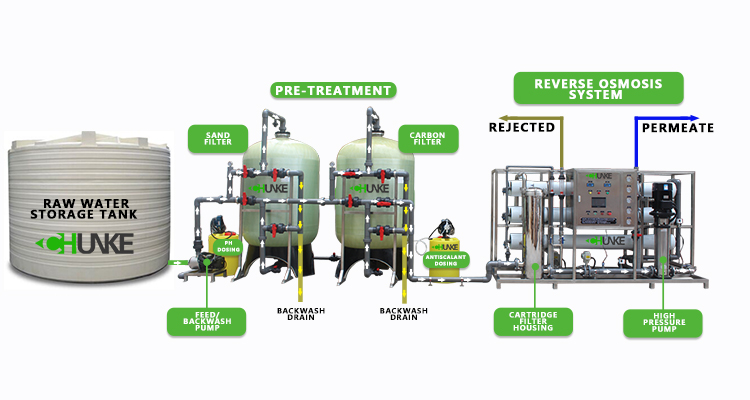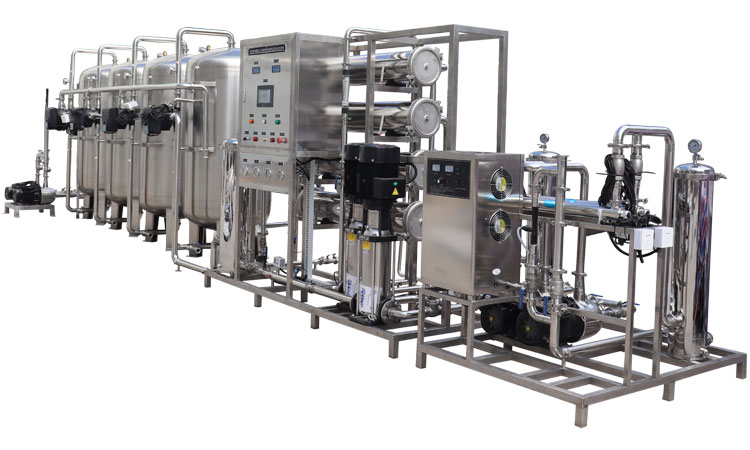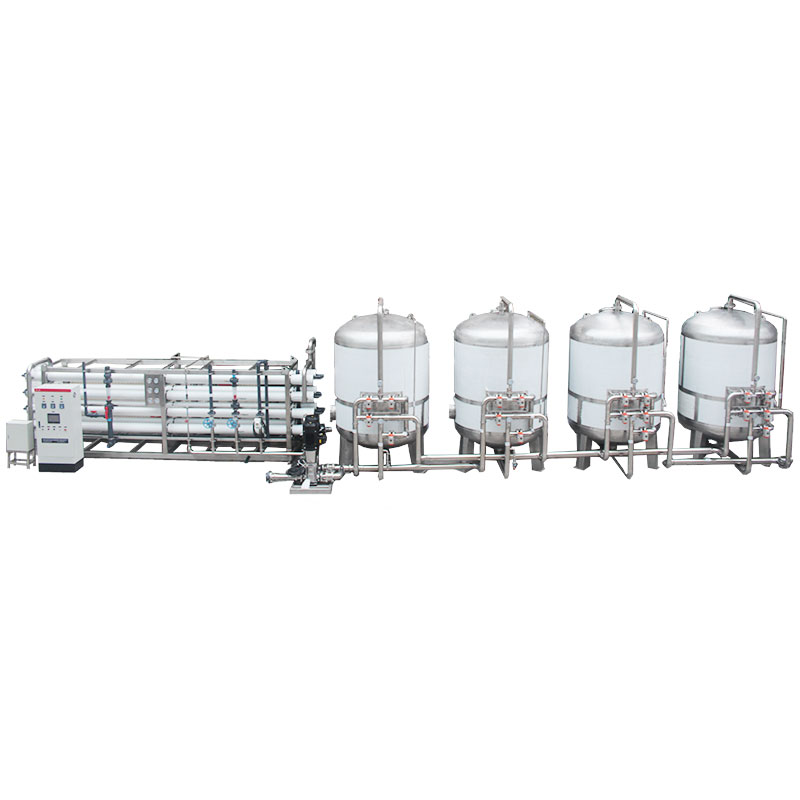Does industrial reverse osmosis system have environmental characteristics?
Industrial reverse osmosis system is an advanced water treatment technology that effectively removes harmful substances, dissolved solids, and other unnecessary components from water through efficient membrane filtration and precision processes, achieving efficient utilization of water resources. Its environmental characteristics are reflected in reducing wastewater discharge, energy conservation and emission reduction, and reducing carbon footprint. While providing clean and pure water sources for enterprises, it also complies with environmental regulations and standards, becoming an important environmental force in promoting sustainable development of industries.
Industrial Reverse Osmosis Systems: Environmental Protection Leading a Clean Future
With the increasing global awareness of environmental protection, various industries are actively seeking more sustainable and environmentally friendly solutions. In this context, industrial reverse osmosis systems are gradually emerging and becoming an important force in promoting sustainable development of industries. Let's delve deeper into whether industrial reverse osmosis systems have remarkable environmental characteristics.

1. Efficient utilization of water resources
The industrial reverse osmosis system effectively filters out harmful substances, dissolved solids, and other unnecessary components in water through highly advanced membrane technology, achieving efficient utilization of water. Compared to traditional water treatment methods, industrial ro systems reduce the demand for a large amount of fresh water, thus playing a positive role in the sustainable utilization of water resources. This is a significant environmental practice for enterprises located in areas with scarce water resources.
2. Reduce wastewater discharge
In traditional industrial production, the discharge of a large amount of wastewater has become one of the main causes of environmental pollution. The industrial ro system intercepts harmful substances in water on the reverse osmosis membrane through precise filtration, reducing the discharge of wastewater. This not only helps to reduce pollution of surrounding water bodies, but also complies with the regulations and standards of environmental protection in various countries, enabling enterprises to better fulfill their social responsibilities while producing.

3. Energy conservation and emission reduction, reducing carbon footprint
Compared to traditional water treatment methods, industrial reverse osmosis systems are more energy-efficient and efficient. It adopts an efficient filtration system to filter out harmful components in water, reducing energy waste in water treatment. Compared with traditional distillation methods, industrial reverse osmosis systems consume less energy in the process of producing high-purity water, effectively reducing the carbon footprint of enterprises and contributing to the construction of a low-carbon economy.
4. New directions for garbage disposal
Traditional water treatment methods may generate a large amount of chemical waste, posing a threat to the environment. The industrial reverse osmosis system reduces the demand for chemical agents, effectively reducing the risk of waste generation. Industrial reverse osmosis systems not only treat water quality, but also focus on reducing waste and recycling resources, providing a new direction for garbage treatment.

5. Long term investment, long-term returns
Although the initial investment in industrial ro systems is relatively high, in the long run, the environmental benefits and reduced operating costs it brings will create more significant economic benefits for enterprises. By adopting environmentally friendly industrial reverse osmosis systems, enterprises not only meet the expectations of society for corporate responsibility, but also enhance their sustainable competitiveness and become leaders in sustainable development.
Overall, industrial reverse osmosis systems have not only played a positive role in the efficient utilization of water resources, but also demonstrated outstanding environmental characteristics in wastewater treatment, energy conservation, and waste reduction.




